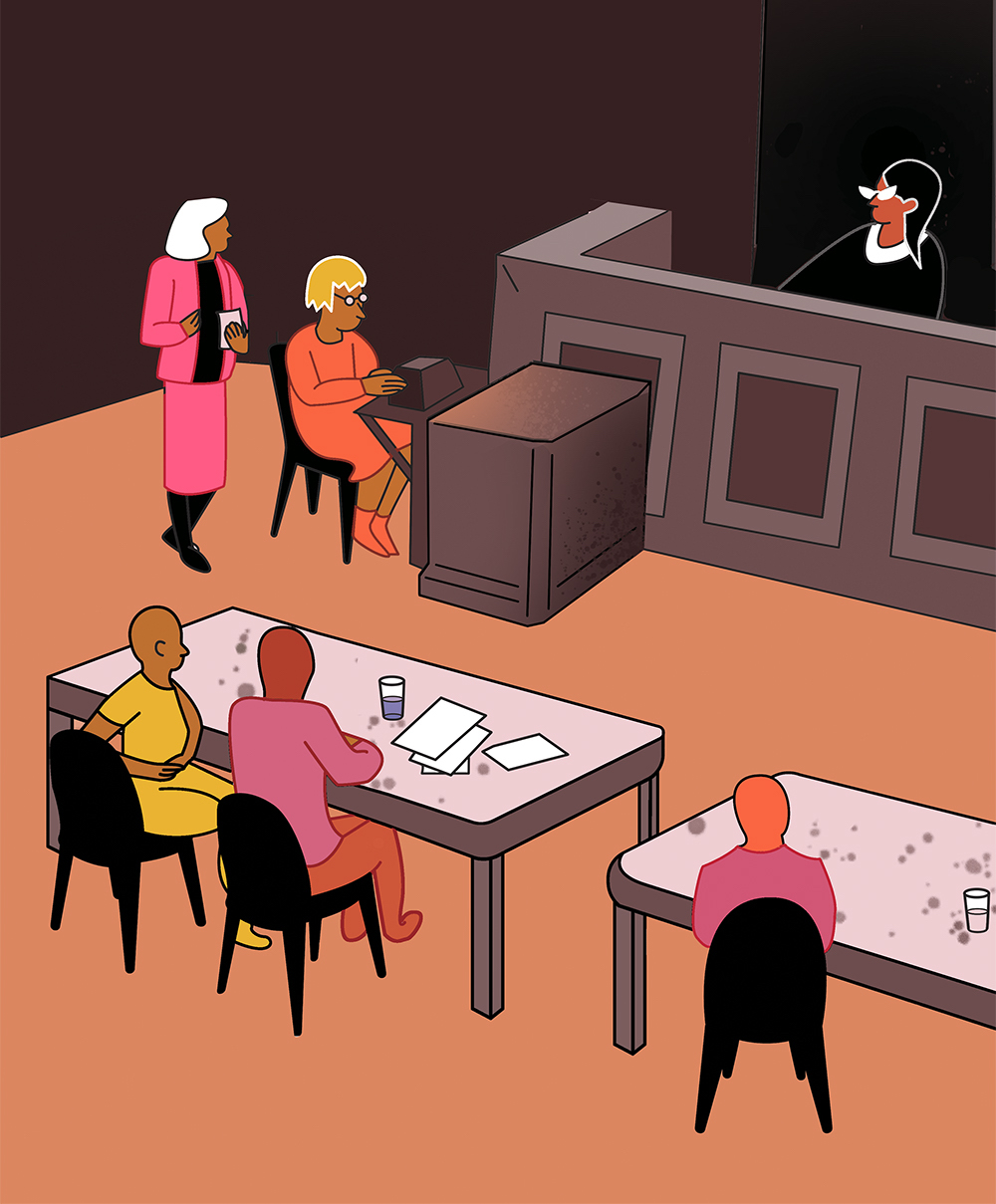“If given the choice, I would choose ‘parent,’” said Sarah Blumel, in her testimony to the court when asked which title she would prefer to have on her son’s birth certificate that isn’t ‘mother’ or ‘father.’
Concordia University’s Centre for Gender Advocacy’s (CGA) trial began on Jan. 15, at the Superior Court of Québec, and is expected to end in late February. The CGA has been preparing the lawsuit against the Quebec government since 2014. They are seeking to invalidate 11 articles from the Civil Code of Québec, arguing that they violate the Quebec and Canadian Charters of Rights and Freedoms.
The laws being challenged affect trans parents, trans youth, nonbinary people and trans migrants. The CGA has gathered 17 witnesses and experts to testify during the trial.
On the first day of the trial last Tuesday, a law professor at Thompson Rivers University, Samuel Singer, and his partner, Blumel, travelled from British Columbia to testify. In the morning, Singer spoke of his experience as a trans person. In the afternoon, Blumel testified about the many ways in which her partner faced discrimination and couldn’t exercise his right to privacy.
In an unexpected turn of events, the Attorney General of Quebec announced on behalf of the Directeur de l’état civil, that a person in Quebec can now ask to have their gender marker removed from their birth certificate and other identification cards upon request.
The defendants also announced that children whose parents have transitioned will have the changes reflected on their birth certificates as well. Plaintiff Lawyer Audrey Boctor explained that “if someone changes from male to female, they will go from being the father to being the mother,” on the birth certificate of their child. However, these are not legislative modifications.
Blumel was interrogated by Plaintiff Lawyer François Goyer in front of the defence attorneys and Hon. Judge Gregory Moore about witnessing Singer’s struggles in his everyday life. Blumel spoke about how long it took for Singer to change his name—he had to prove the legitimacy of such a request. Even changing bank cards with old names on them or doing a police record check meant that Singer had to explain his situation to strangers, according to Blumel.
Blumel was reminded “of the reality of discretionary power.” Singer regularly had to take extra steps that invaded his privacy, which caused discomfort, according to his partner. Addressing the judge, she spoke of the continuous concern and worry that comes with not having a third option on IDs. Blumel said Singer regularly had “to explain a situation that doesn’t match.”

This was of concern, especially when accessing medical care. Blumel expressed that even at the optometrist, her partner would have to explain why his IDs don’t match, having to ask to be called Mr. when the doctor was ready, only to hear “madame” when the time came.
The comfort and relief that would come with having a third option on IDs is incredible, Blumel said. “It makes me so angry, because it’s not a hospitable place for trans people right now.”
In 2010, Blumel and Singer had a child. When the time came to fill out the birth certificate, Singer had the option of checking one of two boxes: ‘mother’ or ‘father.’ Singer chose ‘father.’ However, when the birth certificate came back in the mail, Singer was checked as the mother because the title had to match the sex on his own birth certificate, which says female.
“I find that this is a cause that touched me personally because I’m trans and I have a child,” said Gabriel Lanthier, who attended the trial. Like Singer, Lanthier could not be listed on a birth certificate as the child’s father by law. Having the option to check “parent” on the birth certificate would be the best option, said Lanthier. “Why genderize a position?” asked Lanthier.
When Goyer asked Blumel how she felt after the birth certificate came back in the mail, she said “I felt sad and frustrated.” Throughout her testimony, she had been standing with her hands behind her back, until that moment. She let go, took a sip of water and took off her glasses. “Take your time,” Goyer said, as Blumel took a deep breath and wiped tears from her eyes.
“I want to be respectful to the court and the court’s time,” Blumel said. “These are tears of anger and frustration. Excuse me.” She added, “I’m here because I spend a lot of my time working with and loving queer and trans people, but I think it’s common sense […] it is not going to impact anyone else.”
After a short break the trial will restart on Jan. 23, in the Palais de justice, with academics, activists and doctors testifying. The government’s experts will begin to testify in February.
Graphic by @spooky_soda.




